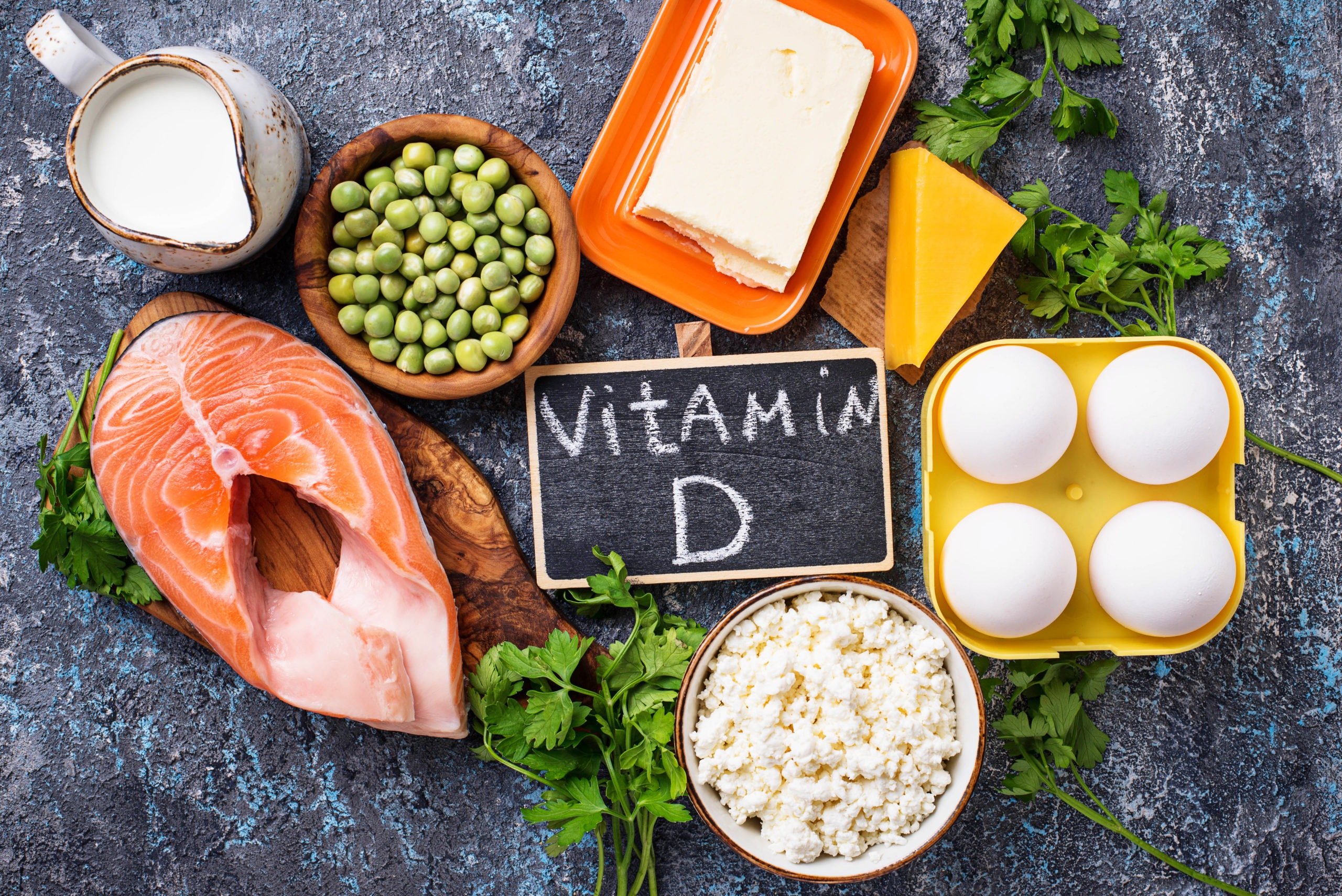
For years, clinical research has been unclear regarding the relationship between vitamin D and cardiovascular disease (CVD). While low levels of vitamin D are correlated with increased risk of CV outcomes including myocardial infarction, stroke, heart failure, and atrial fibrillation, this does not necessarily indicate causation of poor CVD outcomes. Specifically, Mendelian randomization (MR) studies (a study design which measures variation in genes to determine a causal relationship between exposure and outcome) and other randomized controlled trials and meta-analysis have refuted the notion that Vitamin D replacement causing a reduction in CVD mortality or major adverse cardiac events.1-9
What could explain this discrepancy between expected vs observed benefit of Vitamin D supplementation? This topic was explored during CardioNerds Episode 91: Aspirin, Vitamin D, Calcium & Omega 3 Fatty Acids Supplementation with Dr. Erin Michos. Based on the Women’s Health Initiative study, Calcium and Vitamin D supplementation (400 IU D3) had no effect on incident coronary or cerebrovascular events.1 However, what if the supplementation regimen was too low? The ViDA study tested monthly high dose vitamin D supplementation (100,000 IU of D3) which still did not show CVD prevention, but this was considered an atypical supplementation regimen.2 What if these patients had a longer follow up period? Would vitamin D supplementation show benefit then? The Vital Trial has shown no benefit with Vitamin D supplementation among healthy middle-aged men and women over a 5-year follow up period.3 The caveat to the studies mentioned above are that they assume there is a linear relationship between Vitamin D supplementation and CVD benefit. Dose response studies evaluating the relationship between Vitamin D supplementation and CVD indicate there is a nonlinear relationship.10-11 However, studies establishing causation between vitamin D and CVD benefit have been limited (as mentioned previously).
While MR studies in the past were designed to evaluate linear relationships, recently in December 2021, a study was published in the European Heart Journal evaluating both linear and nonlinear MR analysis of vitamin D deficiency and CVD risk.12 In this study, MR analysis revealed a nonlinear association between vitamin D concentration and CVD risk with an L-shaped curve depicting high CVD risk at vitamin D levels below 50nmol/L (P=0.007). In other words, individuals with vitamin D levels at 25nmol/L had an 11% (95% CI: 1.05 to 1.18) higher odds of CVD compared with those with 50nmol/L. These results highlight not only the nonlinear relationship between vitamin D concentrations and CVD risk, but also provides a threshold by which high CVD risk is conferred.
So, to D or not to D? Will vitamin D supplementation be considered an important tool for CVD prevention? Future studies evaluating the nonlinear relationship between the two in different populations may be the next step to inform clinicians of the utility of vitamin D supplementation for cardio-prevention.
Najah Khan, MD, is an internal medicine resident at Houston Methodist Hospital in Houston, TX and a correspondent with the CardioNerds.
And this kind of articles keep showing up in major journalshttps://t.co/J8QdTJ0lgp
— Ahmed Suliman, MBBS, FACP, FESC, FACC (@Sudanheartgroup) January 12, 2022
References
- Hsia J, Heiss G, Ren H, et al. Calcium/vitamin D supplementation and cardiovascular events [published correction appears in Circulation. 2007 May 15;115(19):e466]. Circulation. 2007;115(7):846-854. doi:10.1161/CIRCULATIONAHA.106.673491
- Scragg R, Stewart AW, Waayer D, et al. Effect of Monthly High-Dose Vitamin D Supplementation on Cardiovascular Disease in the Vitamin D Assessment Study : A Randomized Clinical Trial. JAMA Cardiol. 2017;2(6):608–616. doi:10.1001/jamacardio.2017.0175
- Manson JE, Bassuk SS, Buring JE; VITAL Research Group. Principal results of the VITamin D and OmegA-3 TriaL (VITAL) and updated meta-analyses of relevant vitamin D trials. J Steroid Biochem Mol Biol. 2020;198:105522. doi:10.1016/j.jsbmb.2019.105522
- Dal Canto E, Beulens JWJ, Elders P, et al. The Association of Vitamin D and Vitamin K Status with Subclinical Measures of Cardiovascular Health and All-Cause Mortality in Older Adults: The Hoorn Study. J Nutr. 2020;150(12):3171-3179. doi:10.1093/jn/nxaa293
- Zittermann A, Ernst JB, Prokop S, et al. Effect of vitamin D on all-cause mortality in heart failure (EVITA): a 3-year randomized clinical trial with 4000 IU vitamin D daily. Eur Heart J. 2017;38(29):2279-2286. doi:10.1093/eurheartj/ehx235
- Barbarawi M, Kheiri B, Zayed Y, et al. Vitamin D Supplementation and Cardiovascular Disease Risks in More Than 83 000 Individuals in 21 Randomized Clinical Trials. JAMA Cardiology. 2019;4(8):765. doi:10.1001/jamacardio.2019.1870
- Manson JE, Cook NR, Lee IM, et al. Vitamin D Supplements and Prevention of Cancer and Cardiovascular Disease. N Engl J Med. 2019;380(1):33-44. doi:10.1056/NEJMoa1809944
- Zhang Y, Li Y, Liu J, et al. Association of Vitamin D or Calcium Supplementation with Cardiovascular Outcomes and Mortality: A Meta-Analysis with Trial Sequential Analysis. J Nutr Health Aging. 2021;25(2):263-270. doi:10.1007/s12603-020-1551-9
- Banerjee D, Chitalia N, Ster IC, et al. Impact of vitamin D on cardiac structure and function in chronic kidney disease patients with hypovitaminosis D: a randomized controlled trial and meta-analysis. Eur Heart J Cardiovasc Pharmacother. 2021;7(4):302-311. doi:10.1093/ehjcvp/pvz080
- Zhang, R; Li, B.; Gao, X.; Tian, R; Pan, Y; Jiang, Y; Gu, H; Wang, Y; Wang, Y; Liu, G. Serum 25-hydroxyvitamin D and the risk of cardiovascular disease: Dose-response meta-analysis of prospective studies. Am J Clin Nutr. 2017, 105, 810–819.
- Yang, J; Ou-Yang, J; Huang, J. Low Serum Vitamin D Levels Increase the Mortality of Cardiovascular Disease in Older Adults: A dose-response meta-analysis of prospective studies. Medicine (Baltimore). 2019, 98, e16733.
- Zhou A, Selvanayagam JB, Hyppönen E. Non-linear Mendelian randomization analyses support a role for vitamin D deficiency in cardiovascular disease risk. Euro Heart J. Published online December 5, 2021. doi:10.1093/eurheartj/ehab809







 © 2025 Mashup Media, LLC, a Formedics Property. All Rights Reserved.
© 2025 Mashup Media, LLC, a Formedics Property. All Rights Reserved.